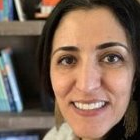Who Are We Really? Genealogical Deconstructions of Monoracialism through Mixed and Contested Racial Identities
A special issue of Genealogy (ISSN 2313-5778). This special issue belongs to the section "Genealogical Communities: Multi-Ethnic, Multi-Racial, and Multi-National Genealogies".
Deadline for manuscript submissions: closed (31 August 2022) | Viewed by 23868
Special Issue Editors
Interests: multiraciality; mixed race identity; higher education; college student development
Interests: racial contestation; racial discourse; whiteness; critical whiteness studies; higher education
Special Issue Information
Dear Colleagues,
The US population is witnessing remarkable changes in demographics. Notably, racially minoritized groups will soon constitute a numerical majority (some estimates suggest by 2040), and one in five individuals will be considered foreign-born, with populations such as Asian Americans and Latinos doubling in size. While the counts of these demographics depend on self-identification honoring individual understandings of race and identity, social forces continue to shape our constructions of race, ethnicity, mixedness, ancestry, and related concepts. The social force of monoracialism, or the maintenance of discrete, singular racial groups and the preference for every individual to fit these monoracial groupings, remains dominant.
However, there are outliers or constructions that do not seem to fit these monoracial ideals. For example, in higher education, Latino/a/x students often confound institutional researchers on how to categorize Hispanic ethnicity versus race, with current practices not able to accurately capture those Afro-Latinx students or those who identify as biracial/multiracial (Dache et al., 2019; Vargas, 2015; Vargas and Stainback, 2016). Moreover, the terms “Latinx” and “multiracial” are also contested (Salinas, 2020; Wijeyesinghe, 2021). Furthermore, it can be argued that Black Americans have seen a progression in moving away from dependence on the “one-drop rule” to identify one’s race, especially with increasing prominence of biracial and multiracial Americans who proudly assert those identities.
Some literature points to a sense of liminality or contestation when it comes to (mono)racial categories and differences. For example, when one’s self-identified race(s) differs from the race(s) typically ascribed by others (Rockquemore et al., 2009), this phenomenon connects with being in a state of racial liminality (Brunsma et al., 2013), which signals the existing “in between” or outside of popular conceptions of race and the monoracial categories currently employed by many researchers. How exactly are these monoracial categories constructed, however? What are the stories, mental models, and social structures that construct race in this way to reinforce monoracialism?
We are pleased to invite you to submit to a Special Issue of Genealogy entitled, “Who Are We Really? Genealogical Deconstructions of Monoracialism through Mixed and Contested Racial Identities”. Our aim is to provide an outlet for deconstructing notions of monoracial categorization by highlighting genealogically related writings of mixed (race, ethnicity, culture, etc.) and contested (liminal, borderland, hybrid, etc.) identities. We ask: What are the discourses extant in society that structure and order our understandings of (mono)racial difference? What family lore, national narratives, technologies of categorization (e.g., the Census, ancestry testing, educational tracking), or interpersonal dynamics (e.g., microaggressions, code switching, interracial relationships) help to police racial borders and perpetuate monoracialism? Together, the Special Issue will capture a sense of collective identities and experiences around mixedness and contestation toward better answering the question “who are we?” (rather than the common question of “who am I?”) when it comes to racial and ethnic demographics.
In this Special Issue, original research articles, literature reviews, and scholarly personal narratives are welcome. Research areas may include (but are not limited to) the following topics:
- Mixedness and multiraciality;
- Borders and borderlands;
- Contested identities;
- Fluidity;
- DNA ancestry testing, interpretation, and consequences;
- Media portrayals and representations;
- Racial “surprises” through genealogy or oral histories;
- Shifting racial hierarchies;
- Antiblackness and multiraciality;
- Methodologies and pedagogies of racial contestation;
- Critical geographies of race.
We look forward to receiving your contributions.
Dr. Marc P. Johnston-Guerrero
Dr. Orkideh Mohajeri
Guest Editors
Manuscript Submission Information
Manuscripts should be submitted online at www.mdpi.com by registering and logging in to this website. Once you are registered, click here to go to the submission form. Manuscripts can be submitted until the deadline. All submissions that pass pre-check are peer-reviewed. Accepted papers will be published continuously in the journal (as soon as accepted) and will be listed together on the special issue website. Research articles, review articles as well as short communications are invited. For planned papers, a title and short abstract (about 100 words) can be sent to the Editorial Office for announcement on this website.
Submitted manuscripts should not have been published previously, nor be under consideration for publication elsewhere (except conference proceedings papers). All manuscripts are thoroughly refereed through a double-blind peer-review process. A guide for authors and other relevant information for submission of manuscripts is available on the Instructions for Authors page. Genealogy is an international peer-reviewed open access quarterly journal published by MDPI.
Please visit the Instructions for Authors page before submitting a manuscript. The Article Processing Charge (APC) for publication in this open access journal is 1400 CHF (Swiss Francs). Submitted papers should be well formatted and use good English. Authors may use MDPI's English editing service prior to publication or during author revisions.
Keywords
- monoracialism
- multiraciality
- mixedness
- contested race
- whiteness
- identity
- deconstruction
- discourse
- education






